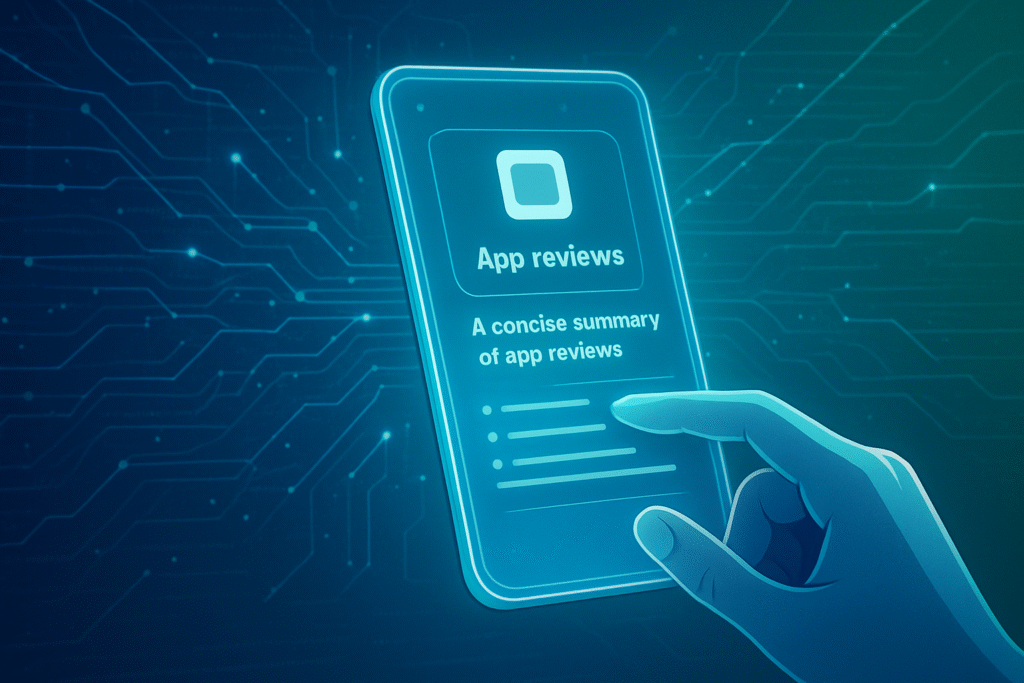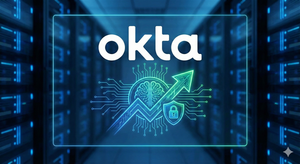
In a significant stride towards enhancing user experience and streamlining app discovery, Google (NASDAQ: GOOGL) has begun rolling out AI-generated app review summaries within its Google Play Store. This innovative feature, which condenses countless user reviews into a concise, digestible paragraph, aims to provide users with an immediate grasp of an application's overall sentiment, highlighting both its strengths and weaknesses. The rollout, initiated in late October and early November 2025, marks a pivotal moment in the ongoing integration of artificial intelligence into everyday digital platforms, promising to reshape how users interact with and select mobile applications.
The immediate significance of this development is multi-faceted. For millions of users navigating the vast landscape of the Play Store, these AI summaries offer a welcome respite from the often-overwhelming task of sifting through thousands of individual reviews. By providing a quick, holistic overview, Google aims to empower users to make faster, more informed download decisions, thereby enhancing the efficiency and satisfaction of the app browsing experience. For developers, while primarily user-facing, the feature offers an AI-curated snapshot of public sentiment, potentially aiding in quicker identification of prevalent issues or popular features without extensive manual analysis. This move aligns with Google's broader strategy to infuse AI, particularly its Gemini model, across its ecosystem, simplifying information digestion and reinforcing its position at the forefront of AI innovation.
The Technical Backbone: How AI Distills User Voices
At its core, Google's AI-generated app review summaries leverage sophisticated Natural Language Processing (NLP) techniques to process and synthesize vast quantities of user feedback. While Google has not disclosed the precise NLP models, the functionality strongly indicates the application of advanced transformer architectures, similar to those found in large language models (LLMs) like Gemini, for sentiment analysis, topic modeling, and text summarization. The system reads through numerous reviews, identifies common themes, and then generates a balanced, coherent summary paragraph, typically three to four sentences long, under a "Users are saying" heading. This goes beyond simple keyword counting or statistical aggregation, employing generative models to cluster and paraphrase sentiments into a more human-like narrative.
Accompanying these summaries are interactive "chips" or buttons, allowing users to filter reviews by specific topics such as "performance," "design," "stability," or "ads." This capability provides a deeper, targeted insight into particular aspects of an app, enabling users to drill down into areas of specific interest or concern. This approach significantly differs from previous methods, which often relied on displaying aggregate star ratings or simply listing the most popular individual reviews. The AI-driven synthesis offers a more comprehensive and nuanced overview, condensing diverse feedback into a single, coherent narrative that highlights an app's overall pros and cons. The feature is available for apps with a "sufficient number of reviews" and has been observed on Play Store versions 48.5.23-31.
Initial reactions from the AI research community and industry experts have been largely positive regarding the utility of the feature, praising its ability to save users time. However, concerns have also been raised regarding the accuracy and reliability of the summaries, particularly the potential for overgeneralization, loss of context, and occasional factual errors. Experts emphasize that these summaries should serve as a starting point for users, not a definitive judgment, and stress the importance of transparency, including clear labeling of AI-generated content and direct links to original reviews.
Reshaping the Competitive Landscape: Winners and Challengers
Google's integration of AI review summaries into the Play Store has significant implications for AI companies, tech giants, and startups alike. Google (NASDAQ: GOOGL) itself stands to benefit immensely by enhancing the Play Store's user experience, increasing engagement, and solidifying its market positioning as a leader in practical AI integration. This move further encourages app usage and downloads within its Android ecosystem. Developers of well-reviewed apps will also likely see their strengths highlighted, potentially boosting visibility and download rates. AI infrastructure providers, supplying the underlying computing power and specialized AI chips, will also experience increased demand as AI integration becomes more widespread.
However, Google is not pioneering this specific application. Apple (NASDAQ: AAPL) introduced a similar feature to its App Store earlier in 2025, and Amazon (NASDAQ: AMZN) has long utilized AI for summarizing product reviews. This indicates a competitive parity rather than a groundbreaking advantage, pushing all major tech players to continuously refine their AI summarization capabilities. Microsoft (NASDAQ: MSFT), while not operating a primary app store in the same vein, will likely continue to integrate similar AI-powered synthesis across its software and services, reflecting the industry-wide expectation for intelligent content features.
For startups, the impact is a double-edged sword. Well-regarded apps with positive feedback may gain quicker visibility. However, startups with fewer reviews might not qualify for an AI summary, making it harder to compete. Concerns also exist that inaccurate or overgeneralized summaries could misrepresent unique selling points or amplify niche negative feedback. This development necessitates an evolution in App Store Optimization (ASO) strategies, with a greater emphasis on cultivating high-quality, concise reviews that AI can effectively summarize, and a focus on quickly addressing issues highlighted by the AI. Third-party review analysis tools may also face disruption, needing to pivot their offerings as AI provides immediate, accessible alternatives.
Wider Significance: AI's March into Everyday Experience
Google's AI-generated app review summaries represent more than just a new feature; they are a clear manifestation of a broader AI trend – the pervasive integration of advanced AI into everyday user experiences to enhance information accessibility and streamline decision-making. This initiative builds upon significant advancements in Natural Language Processing (NLP) and generative AI, which have revolutionized text understanding and generation. It signifies a shift from mere statistical aggregation of reviews to AI actively interpreting and synthesizing complex user sentiments into coherent narratives.
The impacts are profound. On the one hand, information accessibility is significantly enhanced, allowing users to quickly grasp the essence of an app without cognitive overload. This streamlines the app selection process and saves time. On the other hand, critical questions arise regarding user trust. The potential for AI to overgeneralize, misinterpret, or even "hallucinate" information could lead to misinformed decisions if users rely solely on these summaries. Transparency, including clear "Summarized by Google AI" labels and direct links to original reviews, is paramount to maintaining user confidence.
Content moderation also gains a new dimension, as AI assists in filtering spam and identifying key themes. However, the challenge lies in the AI's ability to represent diverse opinions fairly and detect nuanced context, raising concerns about potential algorithmic bias. The "black box" nature of many AI models, where the decision-making process is opaque, further complicates error correction and accountability.
Compared to foundational AI breakthroughs like the invention of neural networks or the transformer architecture, Google's AI review summaries are an application and refinement of existing powerful AI tools. Its true significance lies in democratizing access to AI-powered information processing on a massive scale, demonstrating how advanced AI is moving from niche applications to integral features in widely used consumer platforms, thereby impacting daily digital interactions for millions.
The Horizon: What's Next for AI in App Stores
The integration of AI into app stores is only just beginning, with a trajectory pointing towards increasingly intelligent and personalized experiences. In the near term (1-2 years), we can expect a broader rollout of AI-generated review summaries across more languages and regions, accompanied by continuous refinement in accuracy and reliability. Both Google and Apple (NASDAQ: AAPL) are expected to enhance these features, potentially offering more dynamic and real-time updates to reflect the latest user feedback. AI will also drive even more sophisticated hyper-personalization in app recommendations and search, with "ask a question" features providing context-aware comparisons and suggestions. Developers will see AI playing a crucial role in App Store Optimization (ASO), automating content quality checks and providing deeper insights for listing optimization.
Looking further ahead (3-5+ years), experts predict that AI will evolve to become the "brain" of the smartphone, orchestrating various apps to fulfill complex user requests without direct app interaction. Generative AI could revolutionize app creation and customization, enabling individuals to create personalized AI plugins and assisting developers in code generation, UI design, and bug identification, significantly shortening development cycles. Apps will become proactively adaptive, anticipating user needs and adjusting interfaces and content in real-time. Advanced AI will also bolster security and fraud detection within app ecosystems.
However, significant challenges remain. Ensuring the absolute accuracy of AI summaries and mitigating inherent biases in training data are ongoing priorities. Maintaining real-time relevance as apps constantly evolve with updates and new features poses a complex technical hurdle. The transparency and explainability of AI models will need to improve to build greater user trust and address compliance issues. Furthermore, the risk of manipulation, where AI could be used to generate misleading reviews, necessitates robust authentication and moderation mechanisms. Experts widely predict a future where AI is not just a feature but a standard, embedded capability in applications, transforming them into smarter, personalized tools that drive user engagement and retention.
A New Chapter in Digital Engagement
Google's (NASDAQ: GOOGL) introduction of AI-generated app review summaries in the Play Store marks a pivotal moment in the evolution of digital platforms. This development signifies a clear shift towards leveraging advanced artificial intelligence to simplify complex information, enhance user experience, and streamline decision-making in the app ecosystem. The immediate impact is a more efficient and informed app discovery process for users, while for developers, it offers a distilled view of public sentiment, highlighting areas for improvement and success.
In the broader context of AI history, this initiative underscores the practical application of sophisticated NLP and generative AI models, moving them from research labs into the hands of millions of everyday users. It's an evolutionary step that builds upon foundational AI breakthroughs, democratizing access to intelligent information processing. The long-term impact on the tech industry will see continued investment in AI-driven personalization, content synthesis, and optimization across all major platforms, intensifying the competitive landscape among tech giants.
As we move forward, key areas to watch include the continued expansion of this feature to more regions and languages, ongoing improvements in AI accuracy and bias mitigation, and the deeper integration of AI capabilities across the Play Store, potentially including AI-powered Q&A and enhanced app highlights. The evolution of developer tools to leverage these AI insights will also be crucial. Ultimately, Google's AI-generated review summaries herald a new chapter in digital engagement, where intelligence and personalization become the bedrock of the app experience, reshaping how we discover, use, and perceive mobile technology.
This content is intended for informational purposes only and represents analysis of current AI developments.
TokenRing AI delivers enterprise-grade solutions for multi-agent AI workflow orchestration, AI-powered development tools, and seamless remote collaboration platforms.
For more information, visit https://www.tokenring.ai/.






